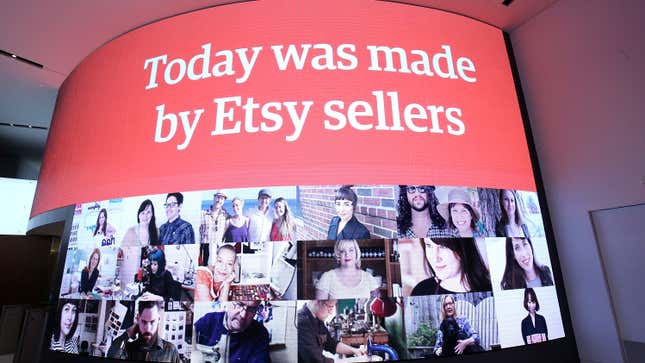Is It OK to Thrift Online? Etsy Sellers Discuss How the Pandemic Has Affected Their Businesses
BeautyStyle

I’m weak. When social distancing ordinances were first put into place, I knew there were two things I was going to genuinely struggle without, because I am an entitled jerk who enjoys a certain consumerist standard of living: concerts and thrift stores. Live music has found a quick fix in intimate Instagram performances, but thrifting feels impossible. The hunt for a good piece is transfixing and potentially rewarding; shopping online simply does not give me the same sort of rush. But when 2 a.m. rolls around on a school night, my mind wants only one thing: to find the vintage fits I’d normally cop at a Goodwill for $7.
-

-

-

-

-

-

-

-

-

-

-

-

-

-

-

-

-

-

-

-

-

-

-

-

-

-

-

-

-

-

-

-

-

-

-

-

-

-

-

-








































